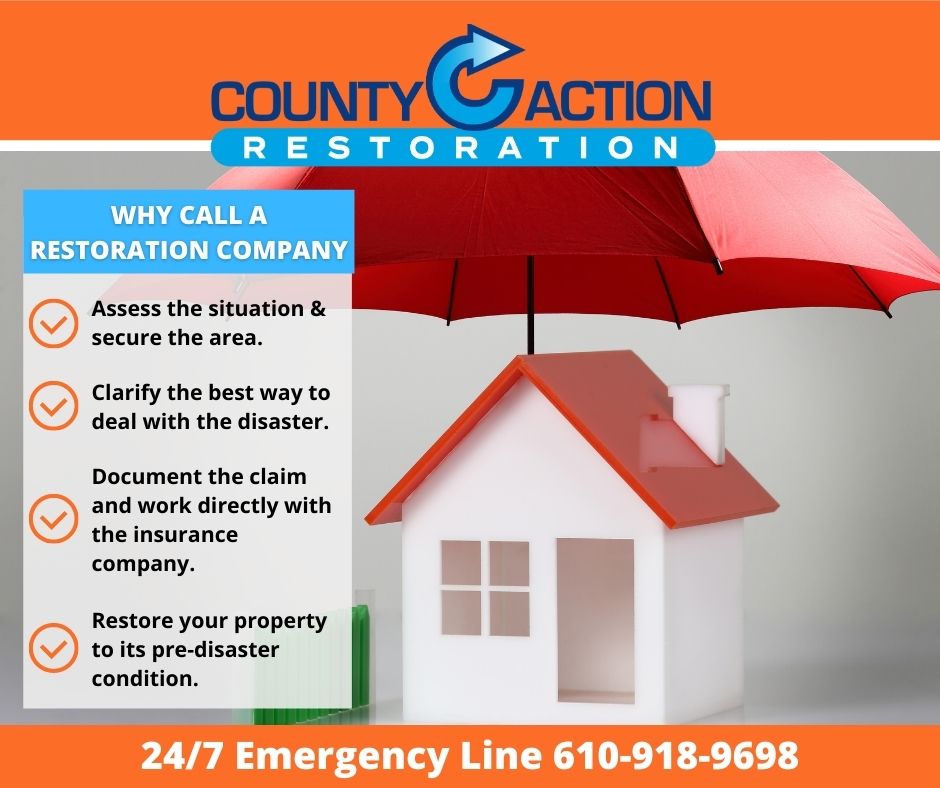|
Insurance claims following a disaster in your home or business are often emotionally involved.
Lack of clarity on the coverage, confusion about the insurance process, insufficient preparation about approaching, and documenting a claim offer many instances to set yourself up for a real disaster. Here are a few tips to prepare for your future insurance claim. How to Approach an Insurance Claim?It’s a sad truth, but disasters will happen over a lifetime. Therefore, it is essential to be well prepared for when they happen. No matter their extent, disasters caused by water, floods, mold, or fire are always emotionally involved for the homeowner. Therefore, eliminate the guessing-game from the equation. An insurance claim will always be evidence-based. It’s that simple. Hence, how much your insurance company will cover is a factor of how well the claim was documented, and the insurance claim process understood. This is where it becomes more complicated for homeowners. Saying that an insurance policy will cover one hundred percent of the damage is not the same as reimbursing one hundred percent of the loss. Why? Because of “depreciation.” This is where the nitty-gritty details of the negotiation with the insurance company begin. In the past few months, floods have impacted the greater Philadelphia area, marking the victims affected by losses the start of a nightmare. Based on these many stories, here’s a simple rule to remember for an insurance claim: Even if you bring the evidence of how much your furniture, valuable electronics, or carpet cost, you are not reimbursed on how much they cost, but on how much they are worth. This is what depreciation means. In other terms, you may be covered one hundred percent for damage in your bathroom, but not get one hundred percent of the cabinet cost to replace them as part of your insurance claim. This is why, try to consider the following steps. Insurance Claims Are About EvidenceIf collecting evidence before the disaster is important - Your old bills, pictures of the rooms of your house - the evidence collected after the disaster happened is critical. The insurance company will want specific pictures to document the insurance claim. It means that you will need to document four steps in total:
If you contact a restoration company, the team in charge of your case will take the pictures and document the insurance claim. No matter the magnitude of a disaster, it is a destabilizing event. Therefore, before calling your insurance company, connect with a restoration company to get perspective and assistance. Restoration companies handle thousands of insurance claims a year on behalf of their clients. So, they are used to the process and are able to gather effectively all evidence. They also know insurance companies, identify the potential bottlenecks, have experience documenting cases, know what pictures to take, and the exhaustive list of what to include to build a strong insurance claim. Ultimately, they will make sure you get the most out of your insurance claim, because they will have to deal with the reconstruction part. Communication with the Insurance Company.The insurance company will dedicate an Insurance Adjuster to your claim. The Insurance Adjuster should not be mistaken with a Public Adjuster. They are not the same people and do not have the same interests in mind. The insurance adjuster works for the insurance company and will decide based on the evidence collected and inspection if the root cause is covered by the insurance policy. They will determine the amount that the insurance company will cover. Therefore, it is essential to prepare thorough documentation. The restoration company will produce estimates necessary to reconstruct your damaged property to its pre-disaster condition. This step prepares for the discussion with the Insurance Adjuster and negotiation about the cost to reconstruct. Indeed, there is in most cases a negotiation with the insurance company in order to fine-tune on the scope and cost of the reconstruction part based on the inspection report. Hence, it is very important to carefully select your restoration company. Time to Repair & Rebuild.Once you receive your check for the insurance claim, you are ready to move to the reconstruction process. Even with the best discussion and most helpful people working together, the check you will receive from the insurance company may not be what you may expect. Remember that depreciation is factored in. In other words, there will always be a discrepancy between what you paid initially and what you will get back from the insurance company in the case of a disaster.
As the insurance claim process is tricky, do your due diligence before any disaster strikes. Read your insurance policy, ask questions, create records, keep traces of receipts, pictures, and select your restoration company beforehand. Do you feel more prepared for when disaster might strike?
11 Comments
|
AuthorMike McCullough is the owner of County Action Restoration Archives
March 2021
|


 RSS Feed
RSS Feed